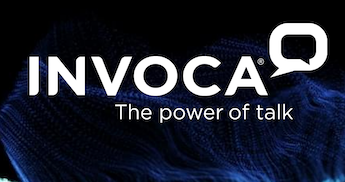 Successful deployments of Large Language Models (LLMs) and Generative AI (GenAI) must be built for purpose and domain-specific. Last week, Invoca unveiled “AI-powered features” that support use cases that have positive impact on customer experience while streamlining processes with direct impact on a company’s bottom line. The offerings are an update to Invoca’s flagship Signal AI offering, which was made generally available in 2017 building on patents that Invoca acquired in 2015.
Successful deployments of Large Language Models (LLMs) and Generative AI (GenAI) must be built for purpose and domain-specific. Last week, Invoca unveiled “AI-powered features” that support use cases that have positive impact on customer experience while streamlining processes with direct impact on a company’s bottom line. The offerings are an update to Invoca’s flagship Signal AI offering, which was made generally available in 2017 building on patents that Invoca acquired in 2015.
Invoca customers as diverse as DirecTV, Banner Health, Spectrum Retirement and Rick’s Custom Fencing and Decking have already incorporated Signal AI into their technology infrastructure in order to apply AI-assisted insights toward reducing customer acquisition costs, identify the most attractive market segments, accelerate the time it takes to close a sale and improve the efficiency of every agent on every call.
Offers Go Beyond the Obligatory “Partnership” with a Hyperscaler
Invoca’s update features a mix of LLMs and GenAI functions that support specific business outcomes. The first benefit is rapid creation of algorithms or models that identify the calls in which agents fail to close on leads and identify the points within those calls where they could overcome objections in the future. Using “semantic search modeled after ChatGPT” the AI-infused system requires 90% less data and as little as 30 minutes to build an algorithm to classify those calls in the future. Addressing how such a capability can be applied in real-time, Invoca’s “AI Smart Alerting” feature employs an LLM to recognize mission-critical exceptions in contact center operations and generate an alert to management so that problems can be remediated right away.
ChatGPT-based call summarization is one of the most cited functions of today’s GenAI offerings. Invoca smartly includes it in the new offer and grounds it in a use case that should resonate with any retailer or service company operating a contact center. It enhances that offer with “Structured Data Extraction”. In the automotive vertical, for instance, it means that a model trained on the content of phone conversations can identify when a caller brings up such things as a vehicle’s make, model number and year to inform follow-up calls.
Combining AI and Voice Biometrics Supports Quality Assurance and Agent Coaching
The big update adds a feature that merges the analytic powers of AI with the personalization capabilities of voice biometrics. It analyzes every conversation to identify the specific agent that handled a call, which is something that is not automatically recognized. This is especially important for multi-location and franchise businesses where multiple staff members answer calls from one shared phone number. All of the information on calls, agents and outcomes can now be presented in an AI-informed Call Review Console. It is a multi-purpose resource that is designed for contact center QA managers to speed up the call review and agent coaching process. It highlights calls for managers to review, facilitates coaching and feedback, and enables teams to create and share call playlists for compliance, auditing, and insight extraction.
Categories: Conversational Intelligence, Intelligent Assistants, Intelligent Authentication, Articles

 Voice AI Agents Redefine CX: Trends, ROI, and Strategies for 2025
Voice AI Agents Redefine CX: Trends, ROI, and Strategies for 2025  Why Voice AI Is Foundational for Enterprise Innovation (Webinar)
Why Voice AI Is Foundational for Enterprise Innovation (Webinar)  Trust and Safety in AI Voice Agents: Insights from Gridspace’s Approach
Trust and Safety in AI Voice Agents: Insights from Gridspace’s Approach  GenAI Trust and Safety: Mitigating Risks and Enabling Solutions
GenAI Trust and Safety: Mitigating Risks and Enabling Solutions